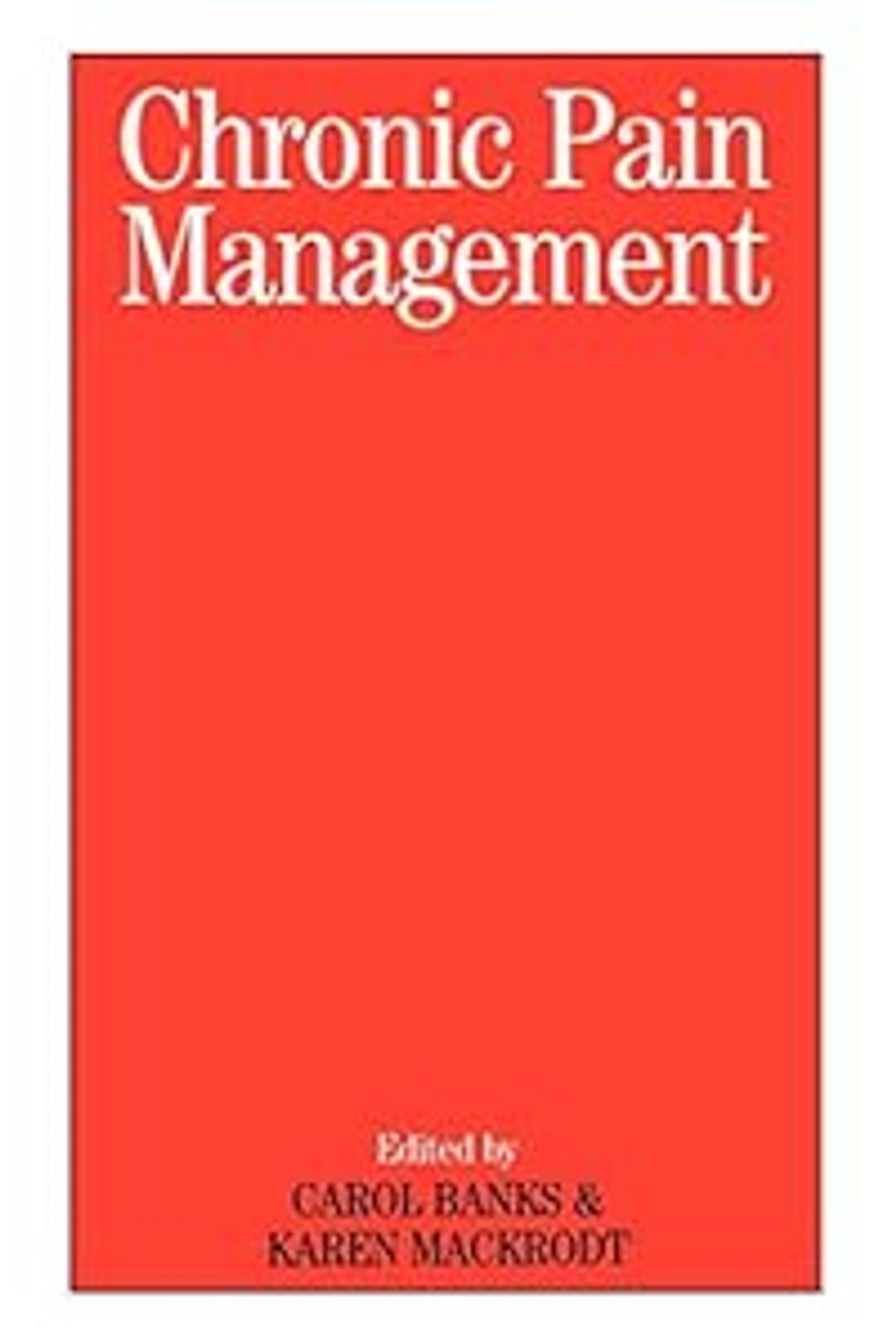
Unlocking the Best Way to Recover After a Workout: Top Tips
Chill Out with Post-Workout Cool Downs

Why Skipping the Cool Down is a No-No
Ever dashed out of the gym right after the last rep, skipping the cool down? Big mistake. Cooling down is crucial because it helps regulate blood flow, preventing dizziness and that post-workout wooziness. Plus, it's your body's way of easing back into reality after you've pushed it to superhero levels.
Cooling down also reduces muscle stiffness and soreness, which means you can get back to your workouts sooner rather than later. Think of it as a thank you note to your muscles for all their hard work.
Remember, a proper cool down can be the difference between feeling like a champ or feeling like you've been hit by a truck the next day.
Here's a quick rundown of what a solid cool down should include:
- Gradual decrease in intensity of your workout
- Stretching exercises targeting the main muscle groups you've worked
- Deep breathing to help lower your heart rate and calm your nervous system
Stretch It Out: The Best Moves for Muscle Recovery
After you've powered through a tough workout, your muscles are begging for some TLC. Stretching is the hero your body needs, helping to reduce muscle tension and increase flexibility. Not all stretches are created equal, though. Here's a quick rundown of some top moves that can help you bounce back faster:
- Hamstring Stretch: Sit on the ground and reach for your toes. Keep your back straight and hold for 15-30 seconds.
- Quadriceps Stretch: Stand on one leg and pull the other foot towards your butt. Hold onto a wall for balance and hold for 15-30 seconds.
- Shoulder Stretch: Bring one arm across your body and lightly press it towards you with the other arm. Hold for 15-30 seconds.
Remember, the goal is to feel a gentle pull, not pain. If it hurts, you've gone too far. Ease into each stretch and breathe deeply to maximize the benefits.
Consistency is key when it comes to stretching. Make it a non-negotiable part of your post-workout routine to see the best results.
And don't forget about those tricky spots like the hips and lower back. They often need extra attention after exercises like squats or deadlifts. Incorporate stretches that target these areas to keep your recovery game strong.
Mind Over Muscle: Breathing Techniques to Bring It Down a Notch
After you've powered through a tough workout, your muscles aren't the only things that need to unwind. Your mind does, too. Breathing techniques can be a game-changer for calming your nervous system and promoting recovery. Start with deep, diaphragmatic breaths—inhale slowly through the nose, hold for a moment, and exhale even slower through the mouth. It's like hitting the reset button for your body.
Breathing isn't just about getting air in and out; it's about mindfulness and intention. Try these steps to maximize relaxation:
- Find a quiet spot where you can sit or lie down comfortably.
- Close your eyes and place one hand on your belly.
- Inhale deeply, feeling your belly rise, then your chest.
- Hold your breath for a count of four.
- Exhale slowly, letting your chest fall, then your belly.
- Repeat for 5-10 minutes, or until you feel a sense of calm.
Remember, the goal is to slow down your breathing and focus on the present moment. This practice can help reduce stress hormones in the body, making it easier for your muscles to relax and repair.
Incorporating these techniques into your post-workout routine can help you transition from high-energy exertion to a state of rest and recovery. It's not just about physical rest—giving your mind a break is crucial for holistic wellness.
Refuel the Right Way: Nutrition and Hydration

Protein Power: What to Eat to Rebuild Muscle
After you've crushed your workout, your muscles are in a state of repair and they're screaming for protein. Protein is the building block of muscle, and getting enough of it is crucial for recovery and growth. But not all protein is created equal. You want to aim for high-quality, complete proteins that contain all the essential amino acids your body needs.
Chicken breast, eggs, and Greek yogurt are your go-to sources for animal-based proteins. If you're plant-based, fear not! Quinoa, tofu, and lentils have got your back. Here's a quick list of some top protein picks:
- Grilled chicken breast
- Cottage cheese
- Eggs or egg whites
- Greek yogurt
- Tofu or tempeh
- Quinoa
- Lentils
- Protein shakes (whey or plant-based)
Remember, timing is also key. Try to get that protein hit within 30 minutes to an hour after your workout to maximize muscle repair. This is when your body is most receptive to nutrient uptake.
And don't forget to mix it up. Variety is not just the spice of life; it's also the secret to a well-rounded diet that keeps all your nutritional bases covered.
Hydration Nation: Why Water is Your Workout BFF
Ever felt like a wilted spinach leaf after a workout? That's your body screaming for hydration. Water isn't just a thirst-quencher; it's crucial for recovery. It helps to regulate your body temperature, keep joints lubricated, and transport nutrients to give your muscles the TLC they need.
Hydration isn't about chugging a gallon of water post-sweat sesh. It's about being consistent before, during, and after your workout. Here's a quick rundown:
- Before: Drink 17-20 ounces of water 2-3 hours pre-workout
- During: Sip 7-10 ounces every 10-20 minutes of exercise
- After: Replenish with 16-24 ounces for every pound lost
Remember, the goal is to drink enough to replace lost fluids without overdoing it. Listen to your body—it knows what's up.
And don't forget electrolytes! They're the unsung heroes that help maintain the balance of fluids in your body. No need to get fancy—snacking on a banana or sipping on coconut water can do the trick. Keep it simple, stay hydrated, and watch your recovery game level up!
Snack Attack: Timing Your Post-Workout Bites
Nailing the timing of your post-workout snacks can be as crucial as the workout itself. The golden rule? Eat within 45 minutes of finishing your exercise. This is when your muscles are most receptive to the nutrients that kickstart the repair process.
Timing isn't just about the clock, though. It's also about what's on your plate. A mix of protein and carbs is the dream team for muscle recovery. Here's a quick breakdown:
- Protein helps repair and build muscle.
- Carbs replenish your energy stores.
Remember, the size of the snack should match the intensity of the workout. A light yoga session might just need a banana and a scoop of peanut butter, while a heavy lifting day could call for a more substantial nosh.
Don't let your hard work go to waste by waiting too long to refuel. A well-timed snack can make all the difference in how you feel and perform the next day.
Catch Those Zzz's: The Role of Sleep in Recovery

Sleep Science: How Shut-Eye Affects Muscle Repair
Ever wondered why you feel like a superhero after a solid night's sleep? That's because sleep is the unsung hero of muscle repair. During deep sleep, your body goes into overdrive repairing muscle tissue and restoring energy levels. It's like a pit stop for your muscles, where they get patched up and prepped for the next day's workout.
Growth hormone plays a pivotal role here, acting like a foreman on a construction site, directing the repair and growth of muscle tissue. Without enough sleep, your body can't produce enough of this vital hormone, leaving your muscles in a lurch.
- Quality: Aim for 7-9 hours of quality sleep
- Consistency: Keep a regular sleep schedule
- Environment: Optimize your sleep environment for comfort and calm
Remember, sleep isn't just about quantity; it's about quality too. Make sure your bedroom is a temple of tranquility to maximize muscle repair.
Dream Time: Tips for a Post-Workout Snooze
Catching some quality Zzz's after a tough workout isn't just a luxury—it's a necessity for muscle repair and overall recovery. Creating a restful environment is key to drifting off into dreamland. Keep your room cool, dark, and quiet, and consider a white noise machine if you're easily disturbed by outside sounds.
Consistency is your bedfellow when it comes to sleep routines. Try to hit the hay at the same time every night, even on weekends. Your body loves predictability, and it'll thank you with faster sleep onset and deeper rest.
Remember, a short nap can work wonders if you're feeling groggy post-exercise. Just keep it under 30 minutes to avoid sleep inertia—the grogginess that can come from waking up mid-sleep cycle.
Here's a quick checklist to optimize your post-workout snooze:
- Invest in a comfortable mattress and pillows
- Avoid caffeine and heavy meals close to bedtime
- Wind down with a book or meditation instead of screen time
- Keep workouts and naps at least a few hours apart
Nap Hacks: Short Sleep Sessions for Recovery
Ever thought about sneaking in a quick nap after hitting the gym? Power naps can be a game-changer for recovery, giving your body a brief yet effective chance to repair and rejuvenate. Aim for a 20-30 minute snooze to avoid grogginess and maximize muscle recovery.
Timing is everything when it comes to napping. To get the most out of your post-workout nap, consider the following tips:
- Schedule your nap within 1-2 hours after exercising.
- Create a restful environment with minimal noise and light.
- Set an alarm to keep your nap short and sweet.
Remember, the goal is to enhance recovery, not replace nighttime sleep. A short nap can reduce fatigue and improve alertness, but it's not a substitute for a full night's rest.
While naps are no magic bullet, they complement a well-rounded recovery plan. So next time you're feeling wiped out after a workout, don't feel guilty about catching some midday Zzz's. Your muscles will thank you!
Active Recovery: Keep Moving on Your Off Days

Light It Up: Low-Impact Activities That Boost Recovery
After pushing your limits with a high-intensity workout, your muscles are screaming for a break. Low-impact activities can be the gentle hug your body needs. They keep the blood flowing, helping to flush out lactic acid and reduce soreness.
Walking, swimming, and cycling at a leisurely pace are perfect examples of how you can stay active while still giving your body the recovery it craves. Here's a quick list of activities to consider:
- Yoga: Stretch and strengthen with mindful movements.
- Pilates: Core-focused exercises for a full-body recovery.
- Tai Chi: Slow, flowing movements for stress relief and flexibility.
Remember, the goal isn't to break another sweat but to aid your body's natural repair process. These activities should feel like a soothing balm, not another round in the ring.
Mixing these into your routine can not only accelerate recovery but also enhance your overall fitness. So next time you're penciling in those heavy lifting sessions, make sure to reserve a spot for some low-impact love.
Cross-Training: Why Mixing It Up Matters
Ever feel like you're stuck in a workout rut, doing the same old routines? Cross-training is your ticket out! By mixing up your activities, you're not just breaking the monotony; you're giving your body a holistic workout. Different sports and exercises target different muscle groups, reducing the risk of overuse injuries and improving overall fitness.
- Swimming: Gentle on the joints, works the whole body
- Cycling: Boosts leg strength, great for cardiovascular health
- Yoga: Enhances flexibility, balance, and mental focus
Remember, the goal of cross-training isn't to replace your main sport or workout but to complement it. Think of it as adding spices to a dish – a little variety can bring out the best flavors in your fitness routine.
So, whether you're a runner adding cycling to your regimen or a weightlifter trying out yoga, cross-training can keep your workouts fresh and your motivation high. Plus, it's a fantastic way to meet new workout buddies and learn new skills. Just make sure to start slow with any new activity to avoid injury.
Rest Day Routines: Finding the Balance Between Rest and Activity
Finding the sweet spot between kicking back and keeping active on your rest days can be a bit of a juggling act. Rest is crucial, but a touch of movement can actually aid your recovery. Think of your rest days as a time to recharge both mentally and physically, without overdoing it.
Balance is key here. You don't want to slip into couch-potato mode, but you also shouldn't be hitting the gym hard. Here's a simple guide to help you stay on track:
-
Active Rest: Engage in activities that are low in intensity but keep the blood flowing. Think walking, yoga, or a leisurely bike ride.
-
Mental Reset: Use this time for mindfulness or meditation to clear your head and reduce stress.
-
Plan Ahead: Look at your rest days as an opportunity to prepare for the upcoming week of workouts, setting goals and laying out your exercise attire.
Remember, rest days are about giving your body the time it needs to repair and strengthen. It's not just about physical rest, but mental rejuvenation too.
Supplement Your Success: Vitamins and Minerals that Help

The Supplement Spectrum: What's Worth It?
Navigating the world of supplements can feel like wading through a sea of endless options. But not all supplements are created equal when it comes to post-workout recovery. Some pack a punch, while others might just deflate your wallet without any real benefits.
Protein powders, BCAAs, and creatine are the usual suspects that get a thumbs-up from fitness enthusiasts. But here's the thing: you've got to know what works for your body and your workout routine. It's not just about chugging a shake; it's about timing, dosage, and quality.
- Protein Powders: For muscle repair
- BCAAs: To reduce muscle soreness
- Creatine: For energy and performance
- Omega-3s: To fight inflammation
- Vitamin D: For bone health and immune support
Remember, supplements should complement your diet, not replace whole foods. Think of them as the sidekicks to your superhero meals, giving you that extra edge in recovery.
Mineral Magic: Key Players in Post-Workout Recovery
After pushing your muscles to the limit, it's time to give them the TLC they deserve. Magnesium, potassium, and sodium play starring roles in your recovery saga. These minerals help to reduce cramps, improve muscle function, and maintain fluid balance. But how much do you need? Let's break it down:
- Magnesium: Aids in muscle relaxation and energy production.
- Potassium: Crucial for muscle contractions and nerve signals.
- Sodium: Helps restore electrolyte balance, especially if you sweat a lot.
Remember, overdoing it with supplements can backfire. It's best to get these minerals through a balanced diet.
Don't forget about calcium – it's not just for bones. It plays a key role in muscle contractions and nerve function. A glass of milk or a serving of yogurt can go a long way in your post-workout routine. And for those who are dairy-free, plenty of plant-based options are rich in these essential minerals too.
Vitamin Victory: Boosting Your Body's Repair Process
After pushing your limits with a killer workout, your body's in dire need of some TLC, and vitamins are your tiny, but mighty, allies. Vitamins play a crucial role in muscle repair and recovery, ensuring you're ready to tackle your next session with gusto.
Vitamin C isn't just for fending off colds; it's a powerhouse for reducing muscle soreness and oxidative stress. Then there's Vitamin E, which acts like a bodyguard against free radical damage, keeping your cells in tip-top shape.
- Vitamin D: Sunshine's best gift, aiding in calcium absorption and muscle function.
- B Vitamins: The energy squad, supporting metabolism and energy production.
Remember, while supplements can help, the best source of vitamins comes from a colorful, varied diet. Think fruits, veggies, and whole grains to get your vitamin fix the natural way.
Don't forget about minerals like magnesium and zinc, which are just as important for recovery. They're like the unsung heroes that help with muscle contraction and immune function. So, next time you're stocking up on post-workout essentials, give your vitamin friends some love.


